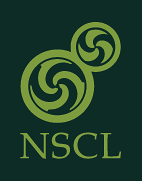2020 FRIB Visiting Scholar Program for Experimental Science names award winners
Ronald Fernando Garcia Ruiz from the Massachusetts Institute of Technology and Mark Spieker from Florida State University are the scholarship recipients for the FRIB Visiting Scholar Program for Experimental Science 2020.
FRIB and the National Superconducting Cyclotron Laboratory (NSCL) initiated the FRIB Visiting Scholar Program for Experimental Science in 2016. The goal of the program is to encourage and help junior researchers to establish a research program at FRIB.
Garcia Ruiz earned a bachelor’s degree in physics at Universidad Nacional de Colombia, a master’s degree in physics at Universidad Nacional Autónoma de México, and a PhD in nuclear physics at KU Leuven. He was a research associate at the University of Manchester from 2016-2017 and a research fellow at CERN from 2018-2019. He is currently an assistant professor at the Massachusetts Institute of Technology. Garcia Ruiz’s research focuses on precision laser spectroscopy experiments of exotic atoms and molecules for nuclear structure and physics beyond the Standard Model. At FRIB, he will work on the development of a new laser spectroscopy experiment and developing a collinear resonance ionization technique at the BEam COoler and LAser spectroscopy (BECOLA) facility.
Spieker earned bachelor’s and master’s degrees in physics from the University of Cologne in Germany, and earned a doctoral degree in experimental physics (PhD equivalent) at the same institution. From 2017-2019, he was a research associate at NSCL. He is currently an assistant professor in the Department of Physics at Florida State University. Spieker’s research focuses in the fields of nuclear structure and nuclear astrophysics. He performs particle-gamma coincidence experiments to study low-lying dipole strength and octupole excitations. With his scholarship, he will perform an inelastic proton-scattering experiment in inverse kinematics with the Gamma-Ray Energy Tracking In-beam Nuclear Array (GRETINA), the S800 Spectrograph, and the Liquid Hydrogen Target to selectively study collective octupole strength in neutron-deficient krypton isotopes.
The award supports short-term stays at FRIB for junior/non-tenured faculty or staff members. The award consists of a stipend of $5,000 intended for travel and local expenses. A typical stay is for one to two months, during which the scholar is expected to focus on current and/or future experiments at the laboratory. This year’s award winners will come to stay at FRIB once travel restrictions associated with COVID-19 have been lifted and the user program has resumed.



